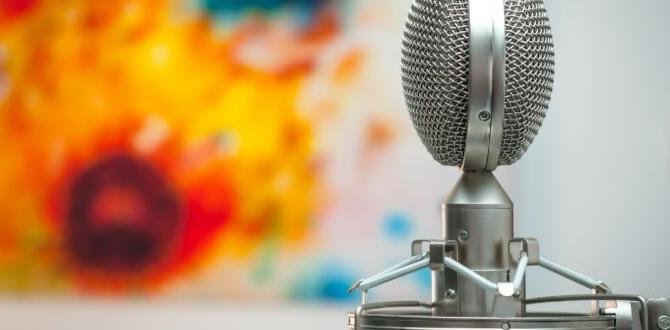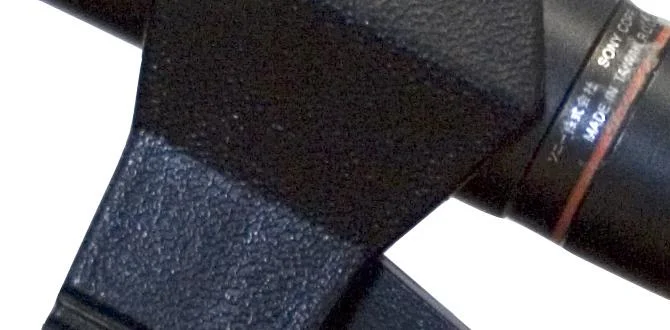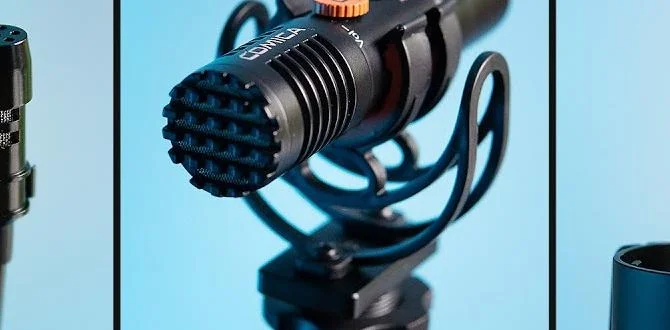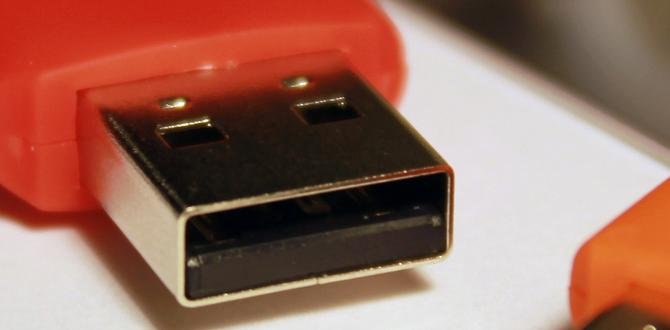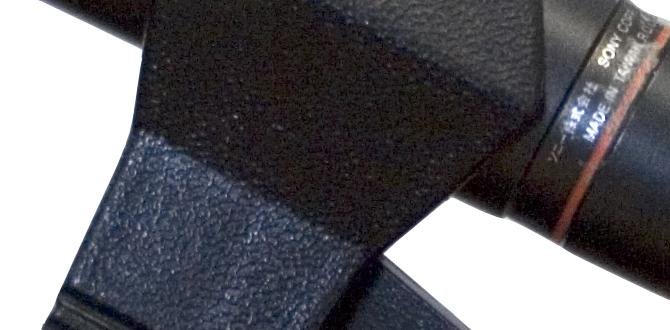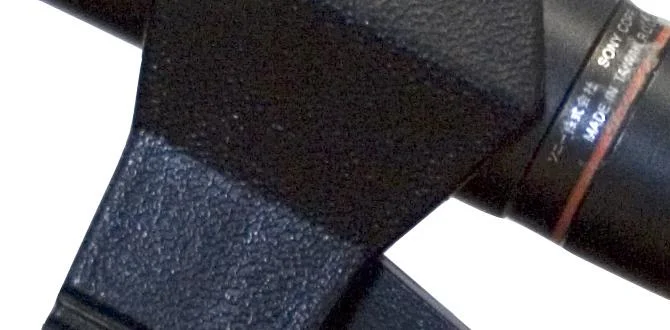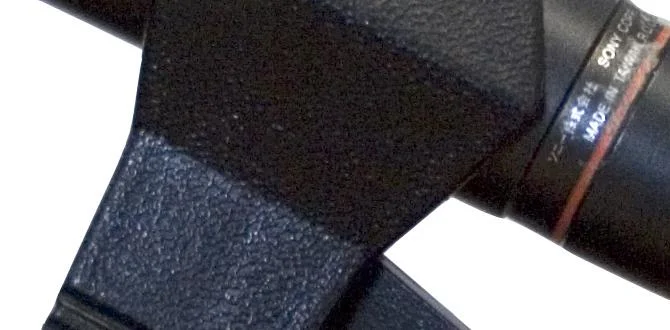Have you ever been to a concert and wondered how the singers sound so clear? The secret often lies in the microphone for singing live. These special microphones help artists share their voices with fans in the best way possible.
Imagine you are on stage in front of a huge crowd. The lights are bright, and the excitement fills the air. You grab the microphone, and suddenly, you feel like a superstar. But how do you choose the right one for your performance? This can be a tough choice!
Here’s a fun fact: the first microphones were invented over a hundred years ago! Since then, they have come a long way. Today, there are many types of microphones designed just for singing. Finding the right one can make all the difference in how your voice shines during a live show.
In this article, we will explore different microphones for singing live. We’ll understand what makes a good microphone and how it can help you impress your audience. Are you ready to discover the magic behind the sound? Let’s dive in!
The Ultimate Microphone For Singing Live Performance
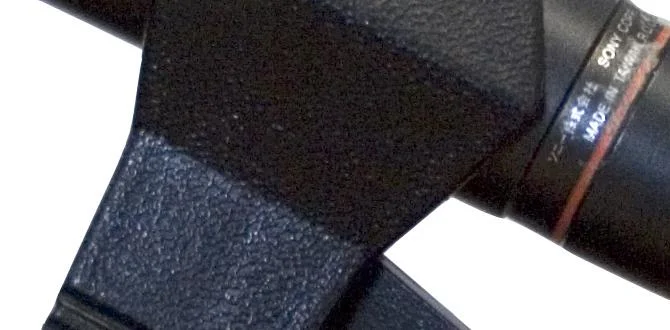
Microphone for Singing Live
Choosing the right microphone for singing live can truly elevate your performance. An excellent live mic captures your unique voice and reduces unwanted noise. Did you know that many professionals recommend dynamic microphones for their durability and sound quality? It’s also essential to consider wireless options for freedom of movement on stage. Whether you aim to enchant audiences or rock the crowd, the right microphone can make all the difference. So, are you ready to find the perfect mic for your live shows?Types of Microphones for Live Singing
Dynamic vs. Condenser Microphones. Wired vs. Wireless Options.Different types of microphones can make your singing sound amazing live. Two main kinds are dynamic and condenser microphones. Dynamic microphones are strong and good for loud sounds. Condenser microphones catch more details and are great for soft voices. You also have wired and wireless options. Wired microphones connect with a cable, while wireless ones let you move around freely. Both types have their own perks!
What is a dynamic microphone used for?
A dynamic microphone is good for live performances because it can handle loud sounds without distortion.
What are condenser microphones best suited for?
Condenser microphones are best for capturing soft vocals and details in the sound.
Key Features:
- Dynamic Microphones: Durable, less sensitive.
- Condenser Microphones: More sensitive, detailed sound.
- Wired Microphones: Reliable, no battery needed.
- Wireless Microphones: Freedom to move, requires batteries.
Key Features to Consider
Frequency Response and Sensitivity. Build Quality and Durability.Choosing a microphone for singing live involves understanding key features. First, consider frequency response and sensitivity. These elements affect how well the sound is captured. A good microphone should pick up all sound notes clearly. Next, look at build quality and durability. It should be sturdy enough to handle travel and stage use. A reliable mic can withstand bumps without breaking, ensuring your performance stays smooth.
Why is frequency response important?
The frequency response of a microphone helps it capture a range of sounds. A mic with a wide range can make your voice sound full and clear. For pop artists, this is crucial in live performances. A wider frequency range typically results in better sound quality.
Key Points to Consider
- Frequency response should cover at least 20Hz to 20kHz.
- Sensitivity affects how quietly it captures sound.
- Durability ensures longevity through many performances.
Microphone Techniques for Singers
Proper Microphone Placement and Distance. Techniques to Reduce Feedback.Using a microphone well can be a game changer for singers during live performances! First, choose the right distance. Staying about 6 to 12 inches away strikes a balance between volume and clarity. Too close and you might sound like a robot on fast-forward. Next, avoid feedback by angling the mic away from speakers. Feedback is that annoying squeal that makes everyone cringe! Proper techniques will help showcase your beautiful voice without unwanted noises stealing the spotlight.
| Technique | Description |
|---|---|
| Microphone Distance | Keep it 6-12 inches from your mouth. |
| Angling | Point the mic away from speakers to prevent feedback. |
Maintenance and Care for Live Microphones
Cleaning and Storing Microphones. Troubleshooting Common Issues.Keeping your microphone for singing live in great shape is essential. Regular cleaning is a must. Use a soft cloth for the outside. Avoid any liquids that can damage it. Store your microphone safely in its case. This helps protect it from dirt and bumps.
If you run into problems, check the following:
- Is the cable securely connected?
- Is the battery charged?
- Are there any visible cracks or damage?
With proper care, your microphone will last longer and perform better.
How do I clean and store my microphone?
Clean the external parts with a soft cloth. Store it in a protective case to keep it safe.
Expert Recommendations and Tips
Insights from Professional Singers. Best Practices for Choosing the Right Mic.Professional singers have some golden tips for picking the perfect microphone. First, choose a mic suited for your voice type. Dynamic mics are great for loud performances, while condenser mics capture soft, sweet notes. Don’t forget to check the mic’s feedback rejection. It’s like finding a good friend who doesn’t bother you during important moments! Lastly, trying out a mic before buying it is a must. You wouldn’t buy shoes without trying them on, right?
| Mic Type | Best For | Note |
|---|---|---|
| Dynamic Microphone | Loud Vocals | Tough and reliable! |
| Condenser Microphone | Soft Vocals | Great for studio recordings! |
| Ribbon Microphone | Rich Sound | Sounds like a dreamy cloud! |
Conclusion
In conclusion, choosing the right microphone for singing live can greatly impact your performance. Look for microphones that reduce background noise and enhance your voice. Test different types, like dynamic and condenser mics, to find what suits you best. Remember, practice with your microphone will improve your confidence. Explore reviews and guides to learn more and make the best choice!FAQs
What Are The Key Features To Look For In A Microphone For Live Singing Performances?When choosing a microphone for singing live, look for a few important things. First, get a dynamic microphone. They are tough and great at blocking out background noise. Next, check if it has a good frequency range. This helps your voice sound clear and bright. Also, make sure it feels comfortable to hold. Finally, try to find a microphone that connects easily to speakers and mixers.
How Do Dynamic Microphones Differ From Condenser Microphones For Live Vocals?Dynamic microphones are great for live singing. They are tough, so they can handle loud sounds without breaking. They also don’t need batteries, which makes them easier to use. Condenser microphones can pick up more details, but they are more fragile. So, for loud performances, we often use dynamic microphones.
What Is The Ideal Microphone Placement Technique For Singers During A Live Performance?The best way to place a microphone for singers is to hold it close, about 6 to 12 inches away from their mouth. This helps pick up their voice clearly. You should also point it slightly towards their mouth, so the sound goes directly in. Make sure it’s at the right height, so they don’t have to bend down or reach up. This way, they can sing comfortably and be heard well!
How Does Microphone Sensitivity Affect The Vocal Sound In A Live Setting?Microphone sensitivity decides how well the mic picks up sounds. If a mic is very sensitive, it catches every little sound, like whispers. This can make your voice sound clear and strong in a live show. But, it can also pick up unwanted noises, like the crowd. So, the right sensitivity helps your voice shine without distractions.
What Are Some Recommended Microphone Models For Aspiring Live Singers On A Budget?If you’re an aspiring live singer on a budget, here are some good microphones you can try. The Shure SM58 is popular and sounds great. The Audio-Technica AT2020 is also a good choice. You might like the Sennheiser E835 for its clear sound. These microphones are affordable and perfect for live singing!

